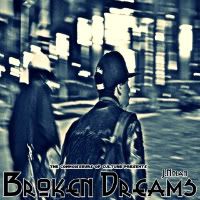Wednesday, December 17, 2003
Saddam's captured: but what does it mean?

Image courtesy: New York Post
Halfway though writing this post, news broke that Coalition Forces in Iraq had finally located and captured former Iraqi head of state, Saddam Hussein. Does it affect what I was going to say? Not really. In fact, here in New York the capture story got pretty healthy competition from the snowstorm that hit us for top billing in the news on the TV stations I was watching Sunday.
Here's something else to consider courtesy of Al Shaprton, interviewed on NY1 last night: Sharpton made the very eloquent point that, after all the hype about Iraq allegedly harboring and developing weapons of mass destruction which spurred the US public to get behind Bush's call for war, it was ironic that, in the end, Hussein was captured in a tiny "spider hole" in possession of one pistol which he refrained from even using. So much for that imminent threat to US National Security!
Consider these comments from Bush's November 27th 2003 speech to the National Endowment for Democracy:
"Sixty years of Western nations excusing and accommodating the lack of freedom in the Middle East did nothing to make us safe - because in the long run stability cannot be purchased at the expense of liberty.Then look at conservative national security analyst Peter Brookes' take on this Bush Iraqi foreign policy strategy:
"The establishment of a free Iraq at the heart of the Middle East will be a watershed event in the global democratic revolution." (CNN.com)
"The president boldly proposed a "forward strategy of freedom" for the Middle East: A new U.S. policy of persistent, pushy pluralism that would become the Middle East's agent of change and a harbinger of peace and prosperity for the region's people.So, how is the "persistent, pushy pluralism" of the Iraq War that deposed Hussein doing at becoming that "agent of change" in Middle East so far?
This great endeavor has started in Iraq, but it should not - must not - end there. Our security, and that of the free world, depends upon it.
"If we succeed in transforming the cradle of civilization, a tidal wave of freedom will wash over the Middle East." (The Heritage Foundation)
As Iranian Elections Approach, Voters Lose Faith in the Reformers (New York Times).Uh oh, looks we're going backwards here already. Could another invasion be on the books if Iran's reformers lose ground to hardliners because of low-voter turnout? I thought Iraqi regime change was supposed to encourage the spread of democracy throughout the Middle East, not its regression?
Of course, this article preceeded the news of Hussein's capture but, focusing back on Iraq, if that doesn't quell the volume of attacks by insurgents, I'm not sure what will. So far, it doesn't look like it has (Voice of America). To be fair though, maybe this policy just needs more time to take hold. I'm sure that what's happened in Iraq so far was all taken into account in the scenario-planning done by the Bush administration for Post-War, right? Right?...
Iraqi Leaders Say U.S. Was Warned of Disorder After Hussein, but Little Was Done (New York Times).OK, maybe not.
Unfortunately, I would imagine that stories like this (CNN.com) and this (Globe and Mail) haven't exactly helped and neither would an event like this (Reuters UK) although, credit due, the US is looking into ways to rectify that first issue already (New York Times).
Now, if only Bush would be more concilliatory about internationalizing the post-war reconstruction of Iraq even as France and Germany finally acquiesce to US demands on the Iraqi debt forgiveness issue after James Baker's recent visit to Europe (Washington Post). So far though, he is still holding firm on his stance barring non-coalition force countries from being able to bid on reconstruction contracts (Los Angeles Times) inflaming the "spoils-of-war"arguments made in anti-US/war/Bush sectors. This is why the Iraq war could still break Bush's presidency as data from one poll suggests (Washington Post) even as, according to another poll, he enjoys an approval rating surge in the wake of the Hussein capture news (New York Times).
Related reading:
Iraqi Vice: Locals are calling it 'the bad side of freedom.' Pills, porn, prostitution and booze are rampant now. And it's not only the radicals who blame America. (Newsweek)
Tweet

































